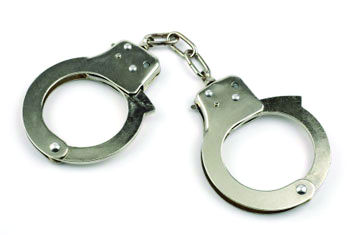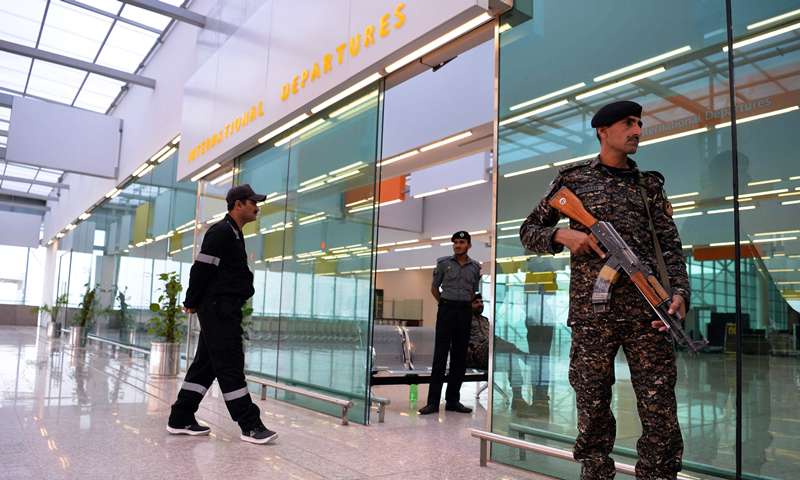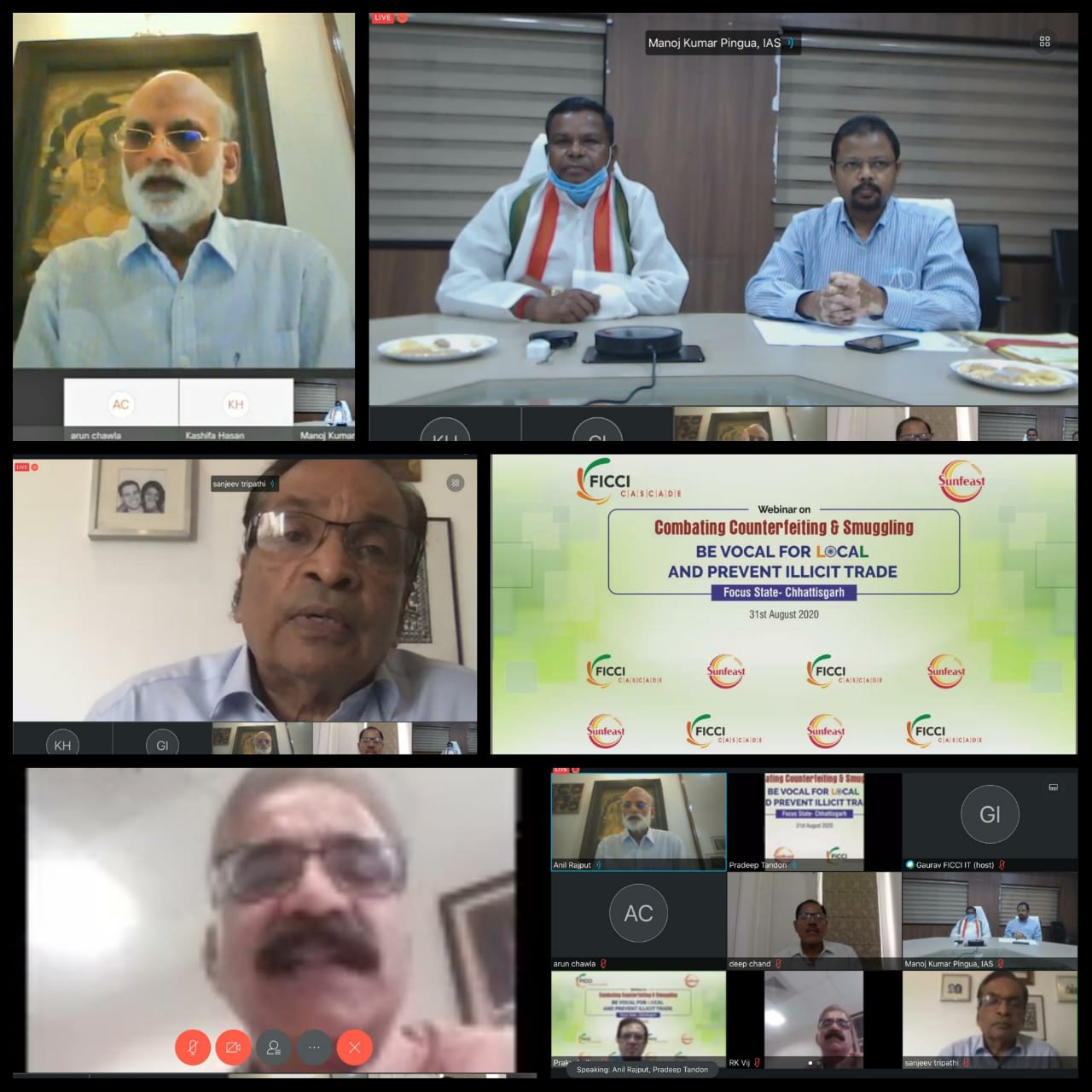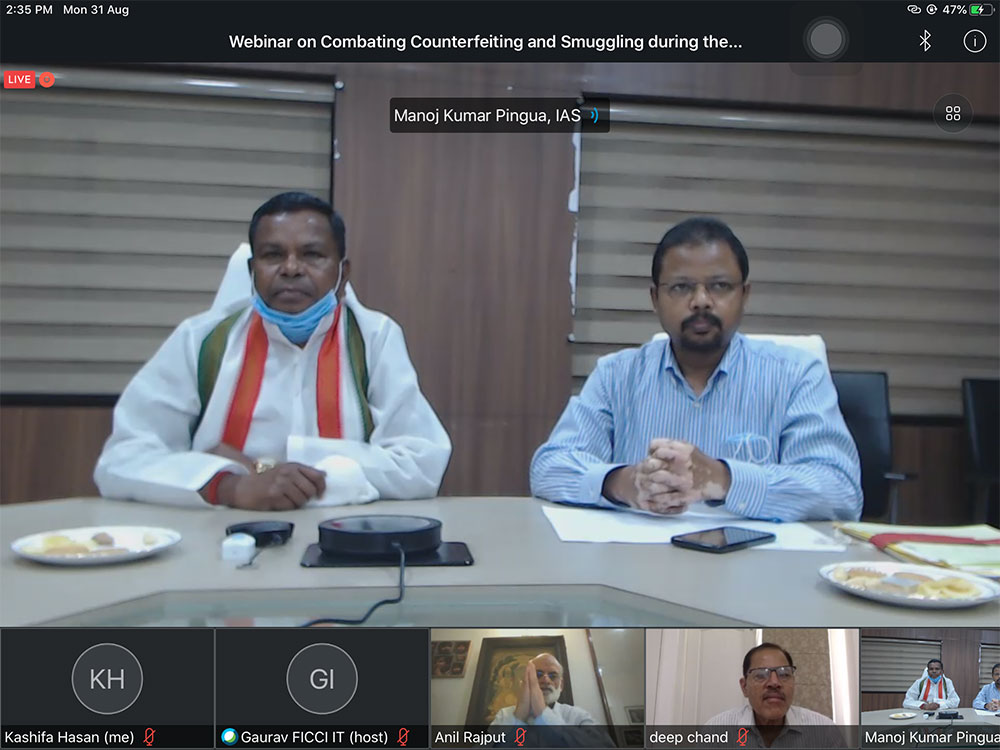Delhi Police Arrests Four Members Of Fake Indian Currency Notes, Seizes Rs 1.34 Lakhs
New Delhi [India], September 5 (ANI): The Special Cell of the Delhi Police has arrested four members of an interstate Fake Indian Currency Notes (FICN) syndicate and seized Rs 1.34 lakhs along with semi-finished fake currency notes of Rs 20,000, police said on Saturday.
According to the police, the arrested persons have been identified as Mohd Azeem Khan, Akil Ahmed, Dr Akeel Ahmad and Nitin Patel, all residents of Uttar Pradesh’s Pilibhit.
Apart from the fake currency notes, scanner, printer, wooden and iron frame, cutters, ink, tape and various other tools and other raw material used in printing of the FICN were also recovered from the posession of the arrested persons.
A case was registered under Section 489-B (using as genuine, forged or counterfeit currency notes), 489-C (possession of forged or counterfeit currency notes), 120B (criminal conspiracy) of the Indian Penal Code (IPC) and relevant sections of the Arms Act.
A team of Special Cell was working for last few months on various syndicates involved in manufacturing, supplying and circulating fake Indian currency notes.
Lear More
2 nabbed for smuggling liquor
The city police booked three persons and recovered illegal liquor and drugs from their possession in separate cases.
In the first incident, the Police Division 6 nabbed two liquor smugglers and recovered three liquor cases from their possession. The suspects have been identified as Ashok Kumar of Kailash Nagar and Gulshan Kumar of New Nanda Colony.
Investigating officer ASI Satnam Singh said after receiving a tip-off, a naka was laid near Gill Chowk where the duo were stopped for checking and illegal liquor was recovered from them.
The suspects were on the way to deliver the liquor to their clients. The ASI said police remand of the suspects would be sought for further interrogation.
In another incident, the Sadar police booked a drug peddler and recovered 8 kg of poppy husk from him. However, the suspect managed to give the police the slip.
https://www.tribuneindia.com/news/ludhiana/2-nabbed-for-smuggling-liquor-136197
Lear MoreSmuggled cigarettes seized in Cebu
The Bureau of Customs intercepted two containers of smuggled cigarettes with an estimated street value of P88.1million at the port of Cebu.
Acting Cebu District Collector Atty. Charlito Martin R. Mendoza said the smuggled cigarettes from China arrived at the Port of Cebu in separate shipments declared to contain umbrella and various home furniture.
The shipments were consigned to GRR Trading—the same importer whose recent shipments of misdeclared articles were previously seized by the Port after being found to contain master cases of cigarettes, he said.
Following an information received by the bureau, customs examiners conducted physical examination of the shipments together with representatives from CIIS, ESS, XIP, Philippine Drug Enforcement Agency, Philippine Coast Guard, and Chamber of Customs Brokers Inc.
“The first container yielded 851 master cases of “Mighty” cigarettes while 911 master cases of “Mighty”, “Fort”, and “Marvel” cigarettes were found inside the second container estimated to have a total street value of P88.1 Million,” the BoC official said.
https://manilastandard.net/news/national/333309/smuggled-cigarettes-seized-in-cebu.html
Lear MoreMan held for printing fake currency in Haryana”s Sirsa
The Haryana Police on Wednesday said they have arrested a man from Sirsa district for alleged involvement in the printing of fake currency.
A police spokesperson said they seized counterfeit notes with a face value of Rs 93,500, a printing machine and 584 currency-size papers from the accused.
He said police had got a secret input about the printing of fake currency at Kharia village in Sirsa by the accused, identified as Manohar Lal.
Upon receiving information, a police team was constituted which conducted a raid and arrested the accused from whom four fake notes of the denomination of Rs 2,000, 167 notes of the denomination of Rs 500, nine notes of Rs 200 and two of Rs 100 denomination were recovered.
One of the accused”s associates managed to escape, the spokesperson said, adding he has been identified and will be behind the bars shortly. A case has been registered and further investigation is under way.
Lear MoreAmritsar: Rs 51 lakh gold seized from Dubai flight
AMRITSAR:A 1kg gold bar valued at around Rs 51lakh was recovered from a Dubai flight at Sri Guru Ramdas International Airport, Amritsar, on Wednesday afternoon. Customs commissioner A S Ranga, who holds the additional charge of Amritsar customs commissionerate, said a search of flight number 6E0408 that arrived from Dubai, led to the seizure of the 1,000g 24 carat gold bar wrapped in a black adhesive tape and concealed underneath an unoccupied seat.
The flight arrived from Dubai at around 3.51pm. The smuggler or the person who had to retrieve the gold bar is yet out of range of custom officials.
Sources said the Rs 700 per gram difference between the pure gold price in Dubai and India allures gold smugglers.
“Today, the per gram gold price in Amritsar’s gold market is Rs 5,100 whereas in Dubai it is Rs 4,400 which turns out to be a benefit of Rs 7 lakh per kg smuggled gold which is enough of the allurement,” said sources in the market, adding that ahead of the festive and wedding season there was immense demand for gold and gold jewellery in the domestic market.
Two Arrested For Smuggling Liquor From Telangana To Andhra Pradesh
Police officials have arrested two persons on Tuesday for allegedly smuggling over 100 liquor bottles from Telangana to Andhra Pradesh, said police.
The two accused have been identified as Devarakonda Srinivas Rao and Devarakonda Rajesh, who hail from Aswaraopeta town of Khammam district, Telangana.
Vissannapeta circle excise inspector JS Balaji said, “The excise police were checking vehicles at Polavaram village in Chatrai Mandal, close to the Telangana border at 5 am today. Police interrogated two persons travelling on a two-wheeler as their movement was suspicious and their body shape was also looking bit strange. The police then found 101 liquor bottles (180 ml each) tied around their chests.”
He further said that the liquor bottles and motorcycle were seized by the police officials and a case was filed against them under relevant section of the Andhra Pradesh Excise Act. Later, they were produced before the magistrate.
Lear More
Man arrested at Islamabad airport, Rs3.1m in fake currency seized
A passenger has been arrested at the Islamabad airport for carrying Rs3.1 million in fake currency.
The passenger, identified as Owais Farooq, was travelling to Dubai via flight number EK-613. He was in the waiting lounge when intelligence personnel stopped him and checked him again.
He was carrying 45,000 Dirhams and 25,000 Riyals, according to the authorities.
The intelligence personnel have handed him over to the Customs department.
https://www.samaa.tv/news/2020/09/islamabad-airport-smuggling/
Lear MoreTwo Held For Smuggling Liquor From Telangana To Andhra
Krishna (Andhra Pradesh) [India], September 1 (ANI): Police officials have arrested two persons on Tuesday for allegedly smuggling over 100 liquor bottles from Telangana to Andhra Pradesh, said police.
The two accused have been identified as Devarakonda Srinivas Rao and Devarakonda Rajesh, who hail from Aswaraopeta town of Khammam district, Telangana.
Vissannapeta circle excise inspector JS Balaji said, “The excise police were checking vehicles at Polavaram village in Chatrai Mandal, close to the Telangana border at 5 am today. Police interrogated two persons travelling on a two-wheeler as their movement was suspicious and their body shape was also looking bit strange. The police then found 101 liquor bottles (180 ml each) tied around their chests.”
He further said that the liquor bottles and motorcycle were seized by the police officials and a case was filed against them under Section 34A of the Andhra Pradesh Excise Act. Later, they were produced before the magistrate.
Lear MoreWebinar on Combating Counterfeiting and Smuggling during the COVID-19 Pandemic and Beyond , Chhattisgarh
31/08/2020 | Chhattisgarh
Be Vocal for Local and Prevent Illicit Trade
FICCI’s Committee Against Smuggling and Counterfeiting Activities Destroying the Economy (CASCADE) organized the next edition of its state specific webinars on Combating Counterfeiting and Smuggling during the COVID-19 pandemic and beyond’ for the state of Chhattisgarh on August 31, 2020.
Mr Kawasi Lakhma, Minister, Commerce and Industry, Govt. of Chhattisgarh, was the Chief Guest at the programme. Mr Lakhma said, “Effective actions to eliminate smuggling and counterfeiting from the State is a focus area for our government and the concerned departments are extremely vigilant in dealing with such cases.” In his address Mr. Lakhma highlighted that the Chhattisgarh government has taken unprecedented reforms to create an enabling environment and is committed to offering investor a friendly infrastructure. He also added that it is imperative that we must all collaboratively check and substantially reduce the illicit market operations and create an eco-system for growth and development in the State.
As cases related to smuggling and counterfeiting rise steeply during the past few months, this webinar was organized to discuss and understand the disruptions caused by the pandemic, which have opened multiple avenues for criminals to prey upon susceptible organizations and consumers. Mr Manoj Kumar Pingua, Principal Secretary Department of Commerce & Industry, Government of Chhattisgarh said, “India’s role as a global economic powerhouse is increasingly linked to its ability to ensure that rights of legitimate business holders are protected with strong rules, and strong enforcement of the laws and regulations”. He further underscored the need for effective coordination between central and state agencies, strengthening domestic manufacturing, addressing the demand and supply gap and leveraging technology, which will make markets free from illicit products.
Sharing enforcement perspectives, Mr R. K. Vij, Additional Director General of Police, Chhattisgarh said, “During COVID times the Chhattisgarh police has taken strict action against people who have been involved in smuggling and have dealt strongly against those who have indulged in the black marketing of consumer goods”. Mr. Vij also suggested that a nodal agency comprising of representatives from different government departments could be formed to ensure coordinated actions against this menace.
Complimenting the Chhattisgarh government and the enforcement agencies for relentlessly pursuing the perpetrators of illicit trade, Mr Anil Rajput, Chairman, FICCI CASCADE said that under the leadership of the commerce and industries minister, promotion of local goods and legitimate businesses will create a conducive environment for the economy of the state government and play a major role in strengthening India.
The session was chaired by Mr Sanjeev Tripathi, Former R&AW Chief and Think Tank Member, FICCI CASCADE. The concluding remarks were made by Mr Pradeep Tandon, Chairman, FICCI Chhattisgarh State Council and President, Jindal Steel and Power Ltd. The webinar was attended by industry, government officials, officers from the enforcement agencies and stakeholders in this segment.
Kindly register at https://webinar.ficci.com/combating/index.php to take parts in the deliberations.
Coverage reportDownload Pdf
Over one kg gold seized, international passenger and receiver arrested in Chennai
Chennai: Air Intelligence Unit (AIU) officials at the Chennai International airport have arrested a gold smuggler, who flew in from Sharjah, and the receiver who was meant to collect the gold from him. 1.16 Kg gold of 24K purity, worth Rs 64 lakh (87,348USD) was seized under the Customs Act 1962.
Based on intelligence, a special alert was maintained to nab the smuggler who was expected to arrive on an Air India Express flight from Sharjah. On observing a passenger who appeared to be hurriedly rushing towards the exit with a carton box, officials intercepted the individual and checked his belongings. The carton box was found to contain clothes, household items and a toolkit.
However, the toolkit contained an Electric wrench, which was found to be unusually heavy. On dismantling the machine, a black cylindrical piece of metal was found concealed inside. On further examination, it was confirmed that the metal cylinder was painted in black, but made of pure 24K gold and it weighed 1.16kg.
Lear More








